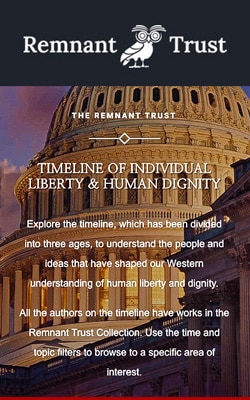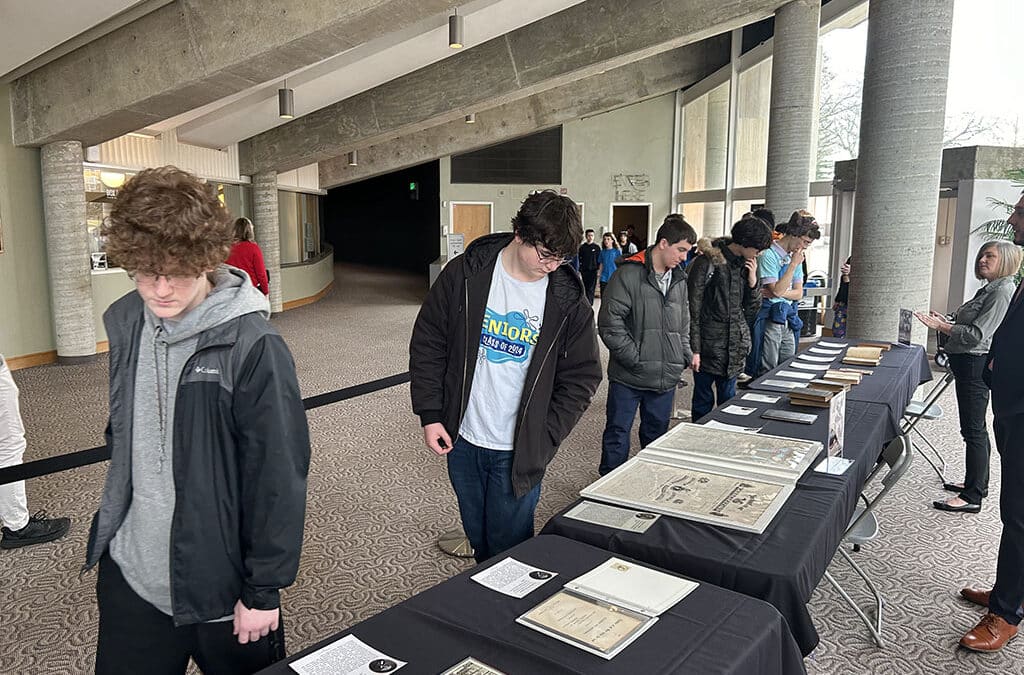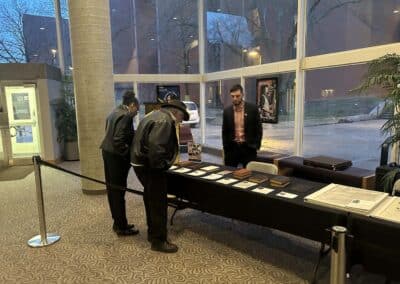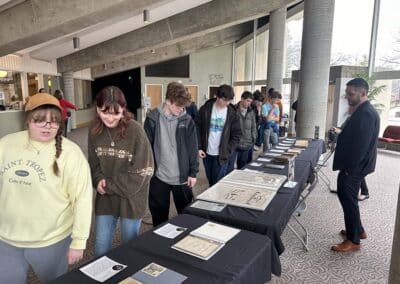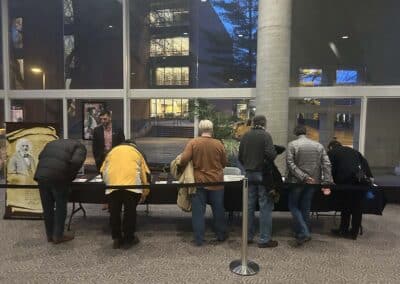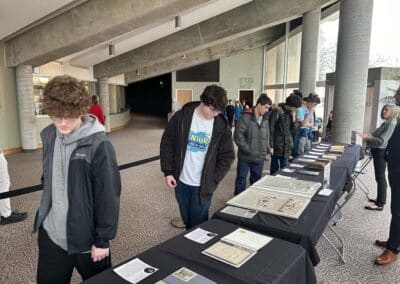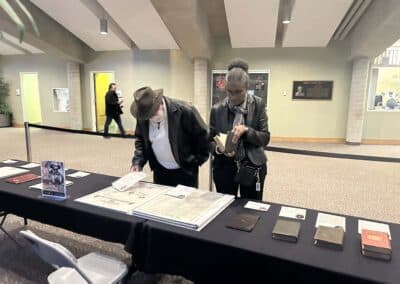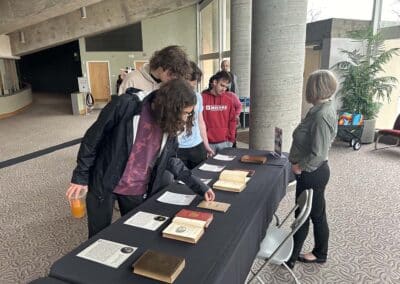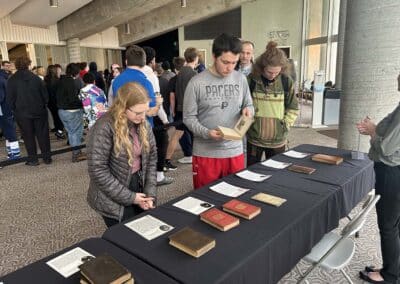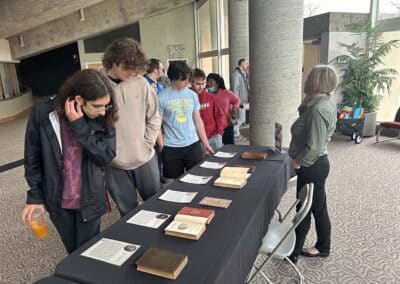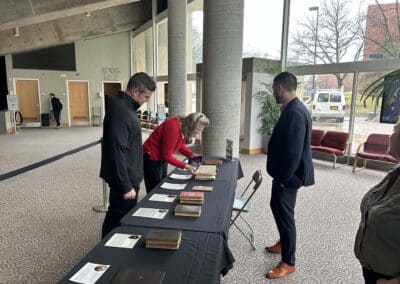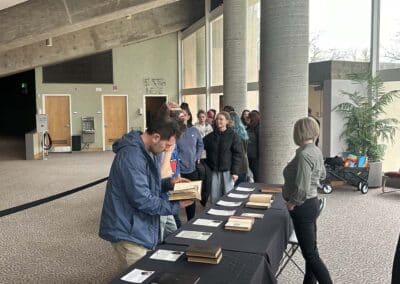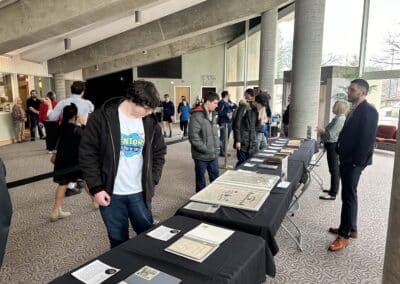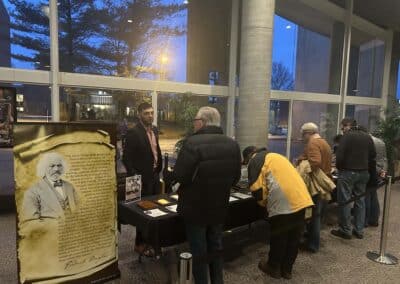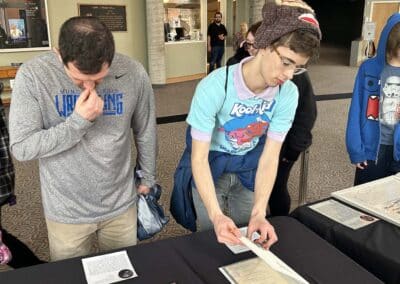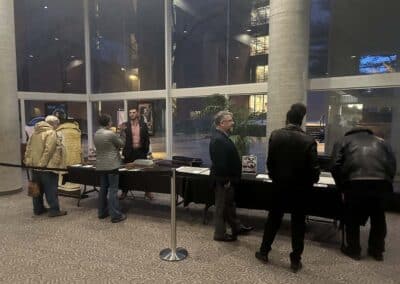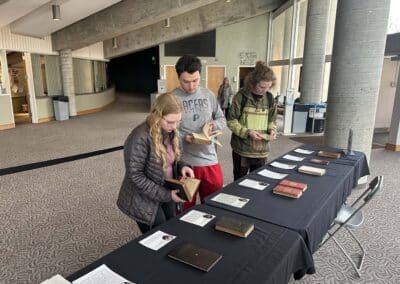Frederick Douglass Jazz Works Event
A big thank you to Ball State University for allowing us to showcase some of the works from our great collection ahead of their Frederick Douglass Jazz Works event that took place on February 22nd. Presented by the well renowned performer, Ruth Naomi Floyd, she details the life of Frederick Douglass through her original jazz compositions. Ahead of the event’s start time, we were lucky enough to showcase some great works by and related to Frederick Douglass to the students and faculty of Wabash College. Some of which, we will outline for you below. The mid-19th century in America saw fervent abolitionist movements, civil rights struggles, and notable literary/political impacts. Key figures included Frederick Douglass, Harriet Beecher Stowe, Abraham Lincoln, and William Wilberforce. Douglass, a former slave turned abolitionist, detailed his journey to freedom in “My Bondage and My Freedom”, advocating for civil rights. Stowe’s “Uncle Tom’s Cabin” heightened anti-slavery sentiments, while Lincoln’s Emancipation Proclamation and the Thirteenth Amendment formally abolished slavery. Legislative efforts such as the Internal Revenue Act supported the Union war effort and reflected societal shifts. Wilberforce and Lysander Spooner contributed to abolitionist discourse, questioning slavery’s legality and morality. These events signify a narrative of struggle, resilience, and progress in American history.
Classical works exhibition included:
- My Bondage and My Freedom by Frederick Douglass, 1855
- Article on Frederick Douglass by Harper’s Weekly, 1883
- Deed for Property in Washington by Frederick Douglass, 1885
- U.S. Grant and the Colored People by Frederick Douglass, 1872
- Equality of all Men before the Law Claimed and Defended by Frederick Douglass, 1865
- Emancipation Proclamation by Abraham Lincoln, 1862
- Dred: A Tale of the Great Dismal Swamp by Harriet Beecher Stowe, 1856
- Uncle Tom’s Cabin by Harriet Beecher Stowe, 1852
- Internal Revenue Act by United States Congress, 1862
- Anti-Slavery Record by American Anti-Slavery Society, 1836
- Anti-Slavery Almanac by American Anti-Slavery Society, 1846
- A Letter on the Abolition of the Slave Trade by William Wilberforce, 1807
- The Unconstitutionality of Slavery by Lysander Spooner, 1839
